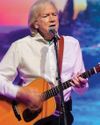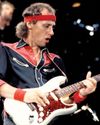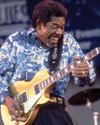
Jimi Hendrix will go down in history as one of the most significant musicians of the 20th century. Even today, 50 years after his death, his influence is still profoundly felt. For many, he was the ultimate electric guitarist. Hendrix was a musical visionary, a virtuoso, and an incendiary live performer (literally), an accomplished songwriter, and a skilled wordsmith. He was perceived as a social and cultural icon, lauded by both music fans and by his not insubstantial peers.
Jimi’s playing was bold, hip, at times brutal and at times sophisticated. Super creative, very, very loud, and incredibly exciting for any guitarist around at the time when Jimi exploded on the scene. And that included most of the members of the UK’s rock elite such as Pete Townshend, Eric Clapton, Jeff Beck, and The Beatles. It’s safe to say that once people had heard and seen him play then their perception of what the guitar was capable of was irrevocably altered.
Jimi’s lead playing was explosive, bold, and beautiful, with his flamboyant style perfectly suited to the new sounds of the day. While guitarists had used these effects before, no one player had so completely assimilated these new sounds in such a compelling and cohesive package. Fuzz, wah, feedback, whammy bar dives, sirens and wails, reverse guitar, echo, stereo panning, and phasing. It’s all there on the few studio albums he released in just a four-year flurry of creativity as a bandleader, before his tragic and wasteful death on 18th september 1970, aged just 27.
Esta historia es de la edición November 2020 de Guitar Techniques.
Comience su prueba gratuita de Magzter GOLD de 7 días para acceder a miles de historias premium seleccionadas y a más de 9,000 revistas y periódicos.
Ya eres suscriptor ? Conectar
Esta historia es de la edición November 2020 de Guitar Techniques.
Comience su prueba gratuita de Magzter GOLD de 7 días para acceder a miles de historias premium seleccionadas y a más de 9,000 revistas y periódicos.
Ya eres suscriptor? Conectar

THE MOODY BLUES
This month Stuart Ryan delves into the picking style of this British prog legend whose acoustic guitar has powered many a Moody Blues song.

WAYNE KRANTZ
This issue Nick Mellor provides an insight into this brilliant jazz stylist, focusing on his approach to improvising over static chords.

OPEN G TUNING
Open tunings are great fun and can help create exciting new ideas. Simon Barnard shows how to incorporate open G tuning into your playing.

RODRIGO GOUVEIA
Last month we featured Mateus Asato, and mentioned the importance of the neo-soul style in his playing. Here we turn to his fellow Brazilian, the master of neo-soul fusion.

MARK KNOPFLER
Our topic this month is a master craftsman as both guitar player and songwriter. His style is unique and his influence spreads far and wide.

U2
Martin Cooper checks out the chiming pedal delay tones of this stadium-filling band from Dublin, Ireland, and guitarist The Edge.

LUTHER ALLISON
It’s blues with a touch of soul this month, as David Gerrish explores the dynamic, expressive style of an often overlooked Chicago bluesman.

JOHANN KASPAR MERTZ Capriccio
This month Declan Zapala explores the music of Austria at the turn of the Romantic period with a fiery caprice to level up your fingers and unlock your inner virtuoso.

THE CROSSROADS Michael Landau
John Wheatcroft explores the playing of a session ace _ and blazing blues-rock maestro who graces the top-flight m band of singer-songwriting legend, James Taylor.

VIDEO MASTERCLASS Troy Redfern
This month GT welcomes this slide guitar virtuoso. If you've been wanting to take your slide playing to the next level then this is one's for you. With Jon Bishop.